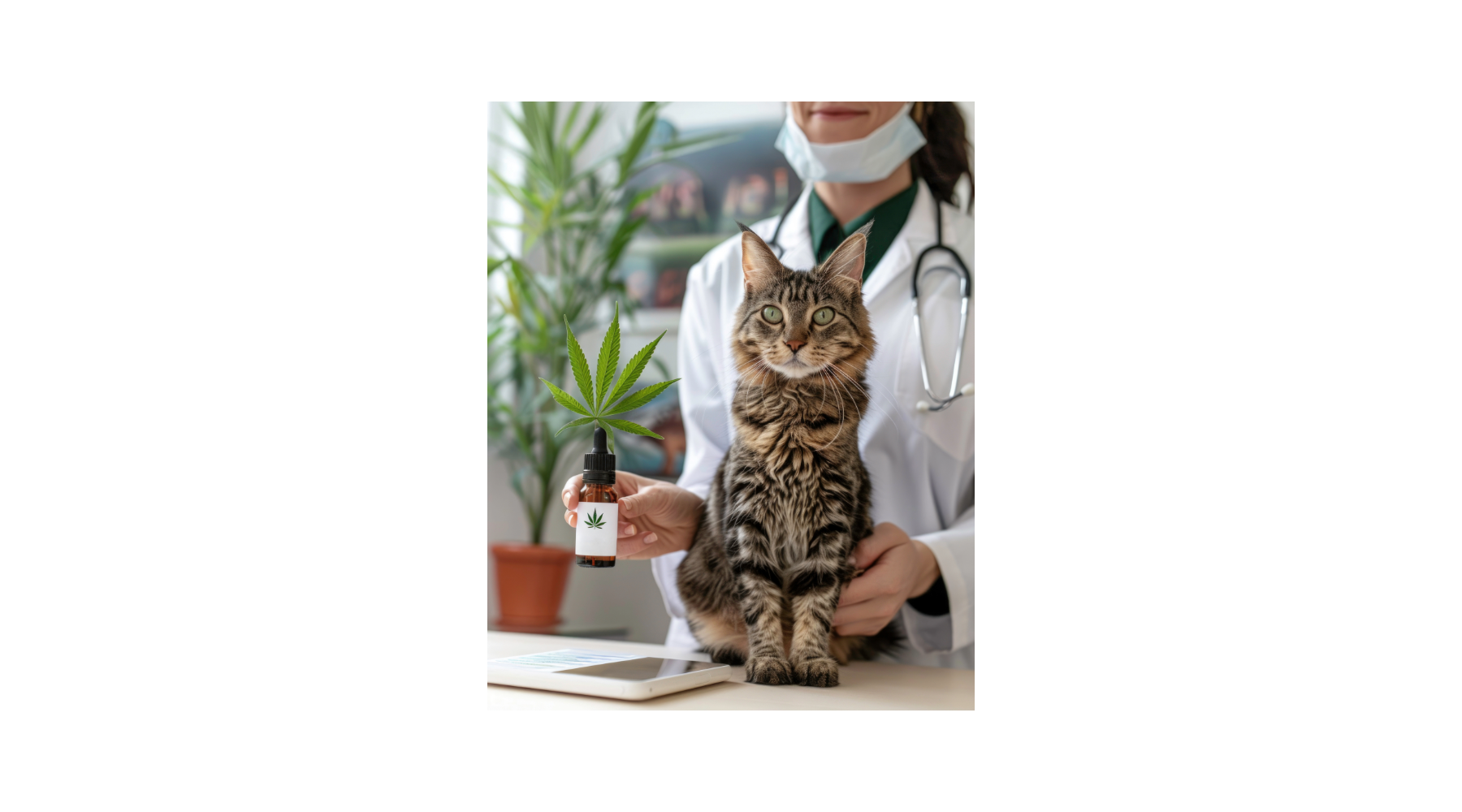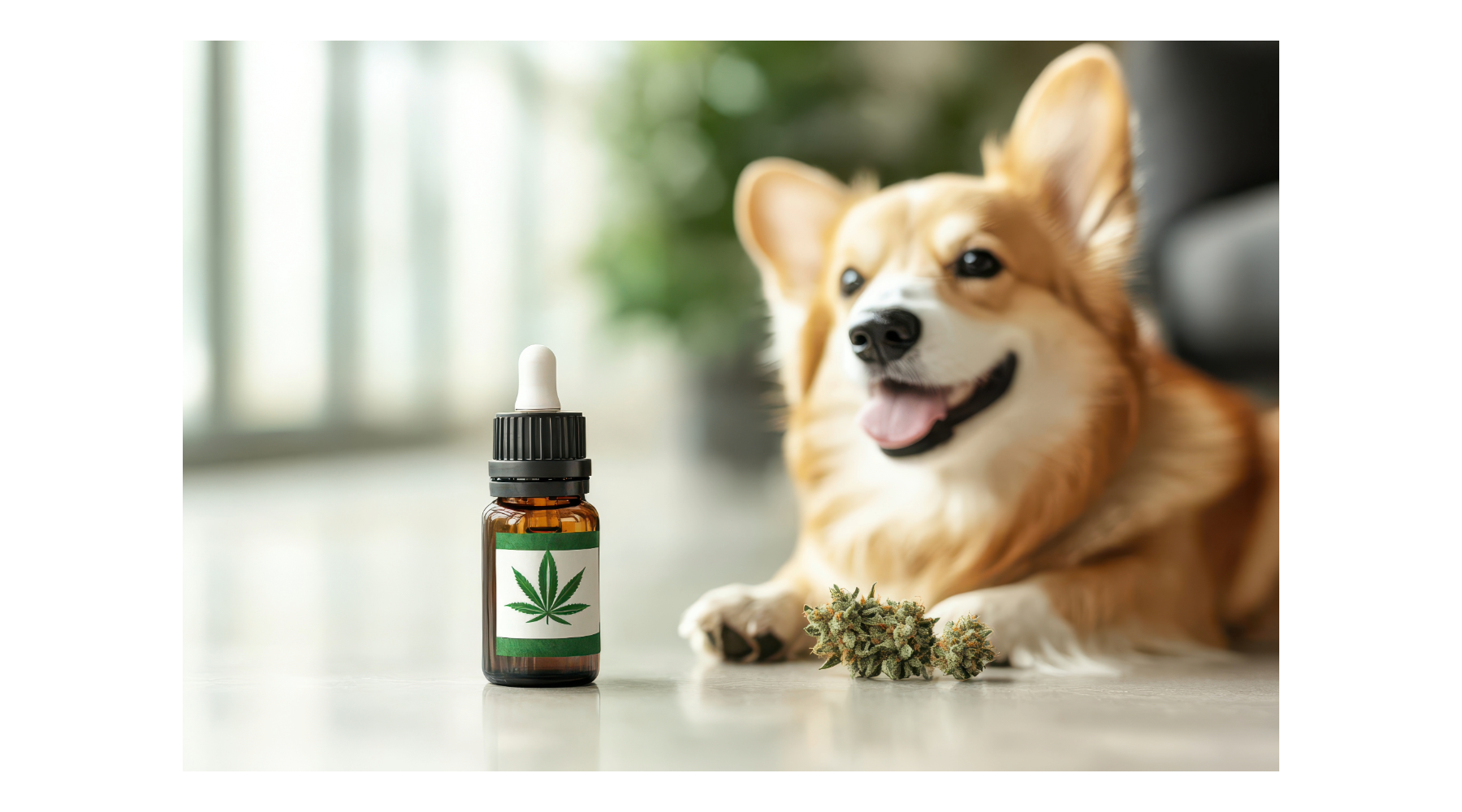Using CBD for Pets: Understanding Dosage and Effects for Dogs and Cats
CBD, short for cannabidiol, has gained significant attention in the wellness world for its potential therapeutic effects on humans. But did you know that CBD can also be beneficial for your furry friends? While more research is still needed, many pet owners are turning to CBD as a way to manage various conditions in their pets, such as anxiety, pain, and inflammation. However, when it comes to administering CBD to your pets, it's important to understand that dosages and effects can differ greatly between dogs and cats. Let's break it down.
What is CBD?
CBD is a naturally occurring compound derived from the hemp plant. Unlike THC (tetrahydrocannabinol), CBD is non-psychoactive, meaning it won’t get your pet "high." CBD works with the endocannabinoid system in both humans and animals to regulate various bodily functions such as mood, pain perception, sleep, and immune responses.
The Benefits of CBD for Pets
Before diving into the specifics of dosage and effects for dogs and cats, it's important to recognize the potential benefits of CBD for pets. Pet owners commonly turn to CBD for its possible ability to help with:
- Pain relief: CBD can help manage chronic pain, especially in older pets or those with arthritis.
- Anxiety and stress relief: CBD can promote calmness, making it a popular choice for pets that suffer from separation anxiety, noise phobias, or general stress.
- Anti-inflammatory properties: CBD may help reduce inflammation in pets with conditions such as arthritis, making it a helpful adjunct therapy.
- Seizure management: CBD has shown potential in helping to reduce the frequency and severity of seizures in some pets.
- Improved mobility: Some pets with joint pain or muscle stiffness may experience improved movement with regular CBD use.
CBD Dosage: Dogs vs. Cats
Now, let’s talk about the crucial difference: the dosage and how CBD affects dogs and cats. While both animals can benefit from CBD, their size, metabolism, and sensitivity to compounds differ, meaning their recommended dosages are not the same.
CBD Dosage for Dogs
Dogs, due to their larger size compared to cats, typically require a higher dose of CBD. As with any pet, it’s always essential to consult your veterinarian before starting CBD to ensure you’re giving the right dose. However, here are some general guidelines to follow:
- Small Dogs (Under 25 lbs): 2–5 mg of CBD per dose.
- Medium Dogs (25–50 lbs): 5–10 mg of CBD per dose.
- Large Dogs (Over 50 lbs): 10–15 mg of CBD per dose.
These doses can be adjusted based on your dog's specific needs and their reaction to the CBD. Start with a lower dose and gradually increase it as necessary while observing your dog’s response.
It’s important to note that dogs tend to metabolize CBD more quickly than cats, so their system may process and react to the compound in a more predictable manner. Some dogs may show immediate effects, while others may take a little longer to feel the benefits.
CBD Dosage for Cats
Cats are much smaller than dogs, and their metabolism works differently. As a result, CBD for cats typically requires a much lower dose. The general starting dose for cats is significantly less than that for dogs:
- Small Cats (Under 10 lbs): 1–2 mg of CBD per dose.
- Medium Cats (10–15 lbs): 2–3 mg of CBD per dose.
- Large Cats (Over 15 lbs): 3–5 mg of CBD per dose.
Since cats have a more sensitive system, it’s important to start with a low dose and monitor how they respond. Cats are also more independent than dogs, so they might not show symptoms of discomfort as readily. Always pay attention to changes in behavior and health to ensure they are reacting well to the CBD.
The Effects of CBD on Dogs vs. Cats
While CBD offers many of the same benefits for both dogs and cats, the effects can differ slightly due to each species' unique physiology.
Effects of CBD on Dogs:
- Pain Relief: Dogs tend to show more immediate signs of relief from pain and discomfort with CBD, especially when used for joint issues or post-surgery recovery.
- Calming: Dogs that suffer from anxiety due to separation or loud noises may experience noticeable calming effects from CBD. It can help them feel more at ease without the sedative-like side effects of some pharmaceutical options.
- Energy Levels: Some dogs may feel a slight boost in energy, especially if CBD is used to reduce pain or inflammation, improving their overall movement and activity.
Effects of CBD on Cats:
- Pain Relief: Cats may be slower to show changes in pain levels, as they often mask discomfort. However, CBD can help alleviate chronic pain from conditions such as arthritis or injury.
- Stress Reduction: Cats are often more sensitive to stress and change than dogs. CBD can help promote relaxation and calmness, particularly in cats with anxiety or stress-related behaviors, such as excessive grooming or hiding.
- Appetite: Cats with a decreased appetite due to illness or medication may find relief from CBD’s potential to stimulate hunger. If your cat has been having trouble eating, CBD could help encourage them to eat more regularly.
Important Considerations
-
Consult Your Vet: Always talk to your veterinarian before starting CBD. This is especially crucial if your pet is already on other medications, as CBD can interact with some drugs.
-
Start Low and Go Slow: Whether you have a dog or a cat, start with a low dose of CBD and monitor your pet’s reaction. Gradually increase the dosage if needed, but always stay within the recommended guidelines.
-
Quality Matters: Ensure you purchase CBD products specifically designed for pets. Human CBD products may contain additives or concentrations that are not safe for animals. Look for pet-friendly CBD oils or treats from reputable brands.
-
Watch for Side Effects: Though CBD is generally well-tolerated by pets, some may experience mild side effects such as drowsiness, dry mouth, or changes in appetite. If you notice anything unusual, reduce the dose or stop use and consult your vet.
Conclusion
CBD holds a promising potential to help pets with a range of issues, from pain and anxiety to inflammation and seizures. However, understanding the difference in dosage and effects between dogs and cats is essential for ensuring their safety and well-being. Always consult with your veterinarian before introducing CBD into your pet’s routine, and start with a low dose to see how your furry friend responds. With the right approach, CBD could be a natural way to improve your pet’s quality of life.
































